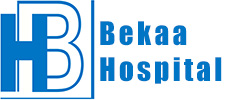Admission & Finances:
- Admission:
Only physicians with admitting privileges are allowed to hospitalize a patient in Bekaa Hospital .
Admissions are processed in the main admitting office, ground floor from 8:00 a.m. till 4 p.m., Monday till Saturday, where insurance coverage, benefits, required referrals and authorization are configured.
When admitted to the hospital, you or a member of your family will be asked to provide essential documents such as:
- Personal ID.
- Admission request form completed by the admitting physician.
- Reserved Date for Hospitalization in case of OR.
- In case the patient is not a self-payer, health insurance card and authorization form.
- The third party payer is requested.
- In case of One Day Surgery:
For one day surgery cases, patients will have their operations and be discharged on the same day.
Admission papers shall be processed in the main admitting office at least 24 hours prior to the day of the operation. - In case of Emergency:
Upon arrival to the Emergency Unit, medical and nursing staff are ready to take care of patients without delay. In case of admission, patient’s relatives are referred to the admitting office where information about your health coverage is compiled.
If not covered by any insurance patient family member is requested to pay an estimated cost of hospitalization.
- Self-Paying:
An estimated cost of patient stay and upcoming procedure at Bekaa hospital is calculated, A depositis paid at the time of admission. Every patient shall keep the receipt of all payments made, and any overpayment will be refunded.
- National Social Security Fund (NSSF):
- Elective Admission
NSSF Authorization Form shall be finalized before admission. This authorization should be approved from hospital NSSF office upon admission. - Emergency Admission
Patient’s representative shall inform the admitting office and finalize all requested approvals from hospital NSSF administrative and medical representative for final approval from NSSF office.
- Elective Admission
- Ministry of Public Health (MOPH):
- Elective Admission
MOH authorization shall be finalized before admission upon providing the following documents:- Personal ID
- Letter stating that the patient doesn’t receive any benefits from NSSF.
- Medical report completed by hospital physician and approved by MOH assigned physician at the hospital.
- Elective Admission
- Emergency Admission
The above steps should be completed by the patient’s relative/ representative.
- Internal Security Forces:
- Elective Admission
A written approval shall be presented upon admission from his guarantor specifying the the class of admission and the type of treatment. - Emergency Admission
Patients are admitted upon presenting their guarantor card, and a coverage letter should be presented to the guarantor the next day.
- Elective Admission
- Ministry of Defense:
- Elective Admission
Same as Internal Security Forces. - Emergency Admission
Same as Internal Security Forces.
- Elective Admission
- Cooperative OF Governmental Employees(COOP):
- Elective Admission
COOP medical form shall be completed by hospital physician, which is signed by the hospital, patient’s employer and approved by COOP physician. - Emergency Admission
same steps of elective admission shall be completed as soon as possible. The authorization form should be presented to the hospital within 48 hours.
- Elective Admission
- Insurance Companies:
- Elective Admission
A written approval shall be presented upon admission from his guarantor specifying the ceiling for coverage and the class of admission.
- Emergency Admission
Patients are admitted upon presenting their insurance car and their Identification card and a medical report admission form should be presented to the Insurance company on the same day.
- Finances:
Patients should keep the receipts of the payments made at the hospital. Approvals and authorization forms should be issued from the third party payers prior to discharge.The percentage of the bill that is not covered by the third party payer should be settled by the patient himself.
It is the patient’s responsibility to understand what type of health coverage his insurance provide related to some policies and exclusions.
